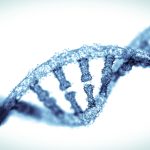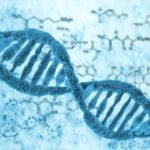Anti-doping agency to ban gene editing starting in 2018
Anti-doping agencies are constantly playing whack-a-mole with cheating; new drugs pop up as soon as tests are found for the old ones. The World Anti-Doping Agency (WADA) now says it wants to to crush a new one before it grows into a monster: Gene-editing. Starting next year, the list of banned substances includes “gene editing agents designed to alter genome sequences and/or the transcriptional or epigenetic regulation of gene expression,” the agency says.
If you’re thinking that sounds a lot like CRISPR gene editing, the new rule seems to be targeting just that. As it stands, WADA already bars genetically modified cells and other types of gene therapy that can enhance performance, but the existing rules don’t cover CRISPR-type methods.
The agency said that certain types of medical gene therapy might be allowed, as long as they don’t significantly enhance athletic prowess. “Generally, performance enhancement implies enhancement beyond a return to normal, although you may appreciate that this is not always easy to prove definitively,” WADA spokesperson Maggie Durand told New Scientist.
WADA seems to be well ahead of any actual cheating. Only one CRISPR trial with humans has been completed, a form of lung cancer treatment done at Sichuan University in China (dozens more are planned in the nation). Unlike regular drug doping, CRISPR requires sophisticated, expensive equipment and techniques, so it’s not like shady MDs can do it their garages — for now.
It’s a good thing that WADA doesn’t have anyone to catch yet, because it doesn’t really seem to have any detection methods, either. When quizzed by New Scientist (Engadget has reached, out too) about how it plans to catch gene-editing cheaters, the agency had no response. It’s been working on techniques to detect such doping for over ten years, but only came up with a single test least year. For now, the best method might be the “biological passport” that can detect significant changes in an athlete’s body.
(83)














